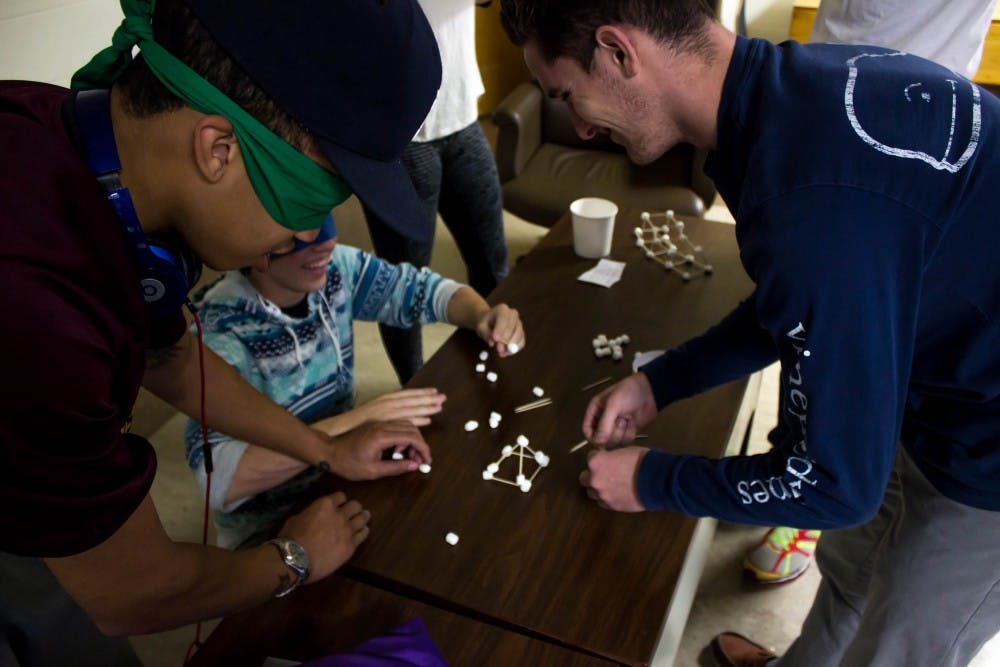Leadership minor has gained popularity

Students in Introduction to Leadership participate in an activity based on adaptive leadership in Finch 122 on Nov. 3, 2015.
By hosting events like Leadership Safari, Spark Leadership Series and providing a Leadership Institute, Flint junior Karah Bragg said Central Michigan University values leadership.
“This university is putting great effort to create new leaders of the future,” she said.
The minor is part of the Department of Recreation, Parks and Leisure Services under the College of Education and Human Services, as one of its cross disciplinary programs. It includes classes from different subjects such as communication, philosophy, ethics and business.
“Anybody can learn to be a leader,” said professor Jamie Brown, who teaches classes within the Leadership minor program.
Brown said the minor is complementary, with a wide variety of subjects and helps develop multi-tasking skills sought by employers.
Bragg said having good leaders is important in today's society. She said the Leadership program has helped her develop professional skills and personality.
The minor has grown since its creation in 2006. More than 500 students are enrolled in it — 400 on-campus students and 125 online from every major and class level.
Both Bragg and Brown said some of the best features of the courses they take for their Leadership Minor are that they have a high level of interaction and small class sizes.
“I have learned how to work with others and that there is no wrong or right way to lead, it depends on the situation,” said Grand Rapids sophomore Jessica Rowland.
Brown said that the RPL Department and Leadership Council plan to strengthen the minor with new classes and networking activities.
Adaptation and flexibility are essential for a leader, Brown said.
“Leadership is a big part of CMU and makes our student stands out, put their stamp on the world,” Rowland said.
Leadership programs are growing in popularity in U.S. colleges, the professor said, but only six percent of them own an institutionally sustained collegiate leadership development program.



